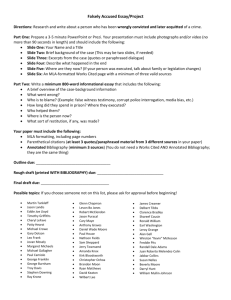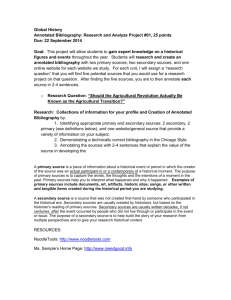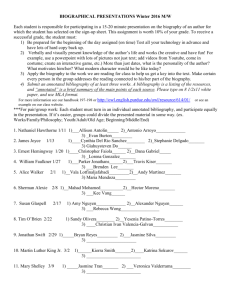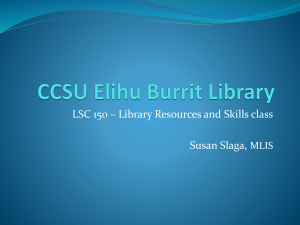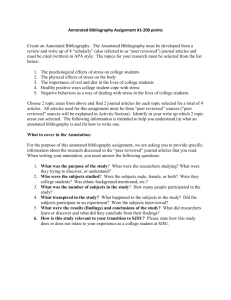The Annotated Bibliography
advertisement
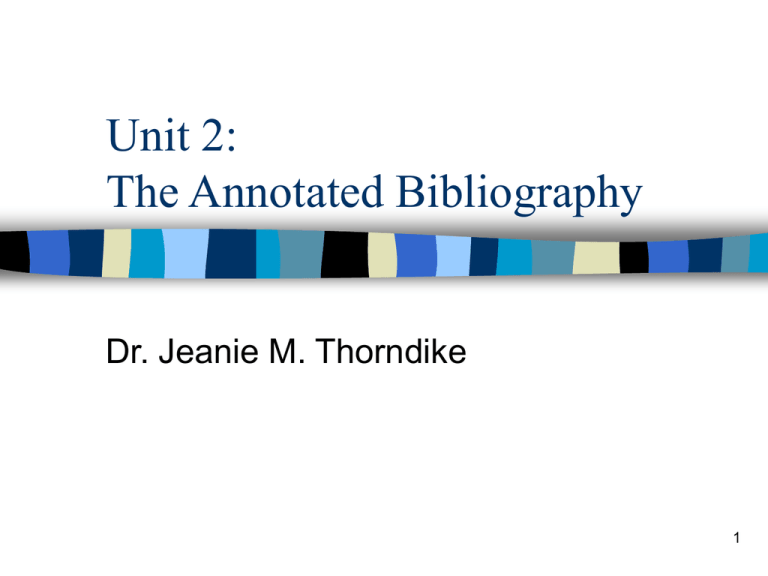
Unit 2: The Annotated Bibliography Dr. Jeanie M. Thorndike 1 What is the Difference ? A Bibliography: Is a list of references put together on a topic of interest. An Annotation Bibliography: Is a commentary a reader makes after critically reading an information source. 2 What is an Annotated Bibliography? • Provides a brief account of available research on a given topic. • It’s a list of research sources that includes concise descriptions and evaluations of each source. • The standard annotated bibliography consists of a citation followed by a short paragraph. 3 What is the Purpose of an Annotated Bibliography? Review the literature of a particular subject. Demonstrate the quality and depth of reading that you’ve done. Explore and organize sources for further research. Highlight sources that may be of interest to other readers and researchers. 4 Where do I start? Select a topic to research – Topic Ideas: • Divorce & its effects • Eating disorders • Drug abuse & its effects • Child abuse & longitudinal effects • Depression & children • TV violence • Any psychological disorders from DSM IV • Adolescent pregnancy • Academic achievement and sports • Death of a spouse, parent, child • Post traumatic stress disorder • Fetal Alcohol Syndrome (FAS) 5 Finding and Selecting the Research Articles Review the literature of a particular topic – Go to KU Library • Electronic Articles – PsychARTICLES - full-text articles – FYI: PsychINFO - abstracts only Select 3-5 research articles from 2-4 peer review academic journals from the past 5 years (2005-2010). – Select scientific studies not a meta-analysis or literature review of a topic. 6 Writing the Annotated Bibliography Summarize each article using the annotated bibliography format – Approximately 150-250 words per article – If you select three articles approximately 2 pages 1. 2. 3. 4. 5. 6. 7. Full citation of your source using APA format guidelines A brief description of the research questions/hypotheses Research methods in study Results of study Limitations of study and Conclusions of the study Quality and credibility of the study and author(s) How study connects or contrasts with other studies on topic 8. Reflection* on how this study sheds light on your topic 7 Quality and Credibility of Study and Author(s) Who is the author? His/her credentials?, Biases? Where is the article published? What type of journal is it? Was the article organized? Were the supporting sources credible? 8 Conclusion of Unit 2 Assignment Conclude the Unit 2 assignment by describing how the process of putting together an annotated bibliography helps researchers to develop quality research questions and hypotheses. – Approximately 1 page 9 Harry the Cat! 10
